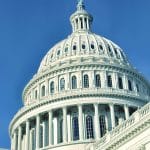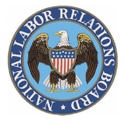 These are some questions that local travelers submitted about the Sept. 22-24 visit by Pope Francis to the capital. I hope the questions and my answers will stimulate further questions, as well as individual planning for what’s likely to be a difficult week for both commuters and visitors. (There are links to more travel tips at the bottom of this posting.)
These are some questions that local travelers submitted about the Sept. 22-24 visit by Pope Francis to the capital. I hope the questions and my answers will stimulate further questions, as well as individual planning for what’s likely to be a difficult week for both commuters and visitors. (There are links to more travel tips at the bottom of this posting.)
Metro vs. the pope
How bad will Metro be during the pope’s visit? Will those of us who actually have to go to work and cannot telecommute run into problems? I’ve never had problems with Metro during inauguration but this is slightly different in my opinion. For what it’s worth, I commute from Huntington to Gallery Place and walk to my office at Metro Center. I’m already planning on going to work early and leaving town late during the Pope’s stay.
DG: Yes, Metro riders will encounter problems, and they need to be prepared. It’s good to think of this as an inauguration-scale event, but there will be significant differences, because of the location and timing of multiple events. Telecommuting is the best option, but many will need to come into the District for their jobs. They should try to do what the questioner is planning, and vary their schedules.
Read more from The Washington Post.

 WISCONSIN RAPIDS, Wis. (WSAU) — Federal Railroad Administration officials were in Wisconsin Rapids Monday to discuss problems including parked trains blocking roadways for long periods of time.
WISCONSIN RAPIDS, Wis. (WSAU) — Federal Railroad Administration officials were in Wisconsin Rapids Monday to discuss problems including parked trains blocking roadways for long periods of time. The rail industry is seeking to put the brakes on proposal to increase the amount of weight that trucks can carry in a bid to protect cargo business that typically goes to trains.
The rail industry is seeking to put the brakes on proposal to increase the amount of weight that trucks can carry in a bid to protect cargo business that typically goes to trains.  Safety inspectors from the state Department of Transportation and the Federal Railroad Administration uncovered 95 defects in their most recent examination of rail cars and tracks across upstate New York, Gov. Andrew M. Cuomo announced Monday.
Safety inspectors from the state Department of Transportation and the Federal Railroad Administration uncovered 95 defects in their most recent examination of rail cars and tracks across upstate New York, Gov. Andrew M. Cuomo announced Monday. Oscar Munoz, CSX Corp.s No. 2 executive, is leaving the Jacksonville-based railroad company to become chief executive officer of United Continental Holdings Inc. Gooden has helped lead CSX’s growth and value pricing efforts.
Oscar Munoz, CSX Corp.s No. 2 executive, is leaving the Jacksonville-based railroad company to become chief executive officer of United Continental Holdings Inc. Gooden has helped lead CSX’s growth and value pricing efforts. On the night of March 23, 1989, the Exxon Valdez left the Alyeska Pipeline Terminal, carrying more than 1.2 million barrels of crude oil from Alaska’s North Slope. Three hours into its journey to Long Beach, California, the Valdez grounded at Bligh Reef, in Prince William Sound, rupturing eight of its 11 cargo tanks and spilling some 10.8 million gallons of crude oil.
On the night of March 23, 1989, the Exxon Valdez left the Alyeska Pipeline Terminal, carrying more than 1.2 million barrels of crude oil from Alaska’s North Slope. Three hours into its journey to Long Beach, California, the Valdez grounded at Bligh Reef, in Prince William Sound, rupturing eight of its 11 cargo tanks and spilling some 10.8 million gallons of crude oil.
 On August 27, 2015, the National Labor Relations Board (NLRB) overturned its policy that had existed since 1962, and held that employers remain obligated to withhold from wages and remit union dues to their employees’ union, even after the expiration of a collective bargaining agreement (CBA) that creates the obligation.
On August 27, 2015, the National Labor Relations Board (NLRB) overturned its policy that had existed since 1962, and held that employers remain obligated to withhold from wages and remit union dues to their employees’ union, even after the expiration of a collective bargaining agreement (CBA) that creates the obligation.